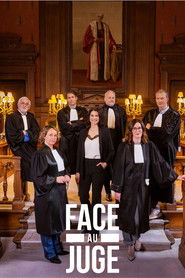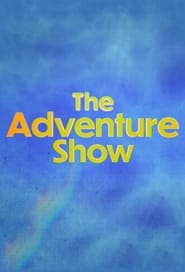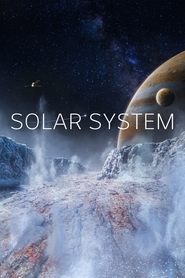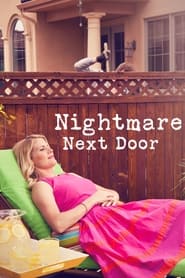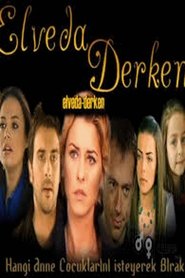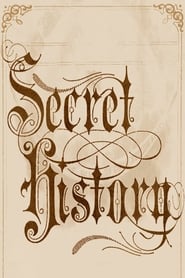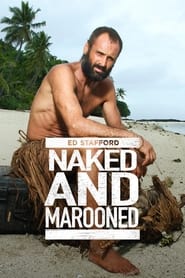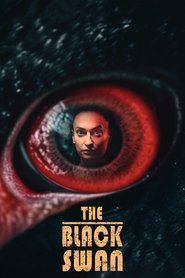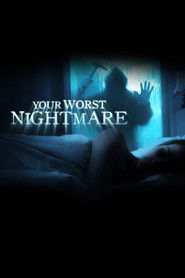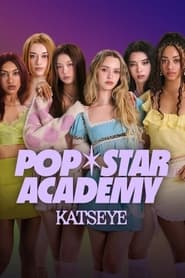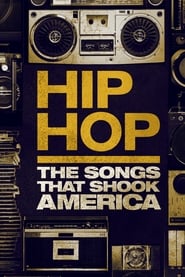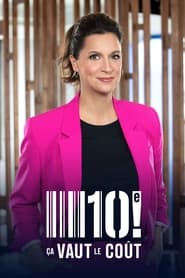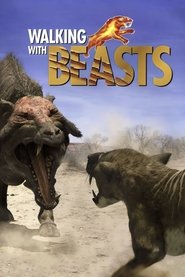Popular Documentary TV Series on Tub Tv - Page 50
-
Face au juge
2015
-
The Adventure Show
2007
The Adventure Show
2007
Scotland's thriving adventure sports scene - from mountain biking and kayaking, to adventure racing, surfing and mountain marathons. -
Solar System
2024
Solar System
2024
star 8.2Voyage across the solar system with Professor Brian Cox and explore the new discoveries, natural wonders and strange mysteries on the diverse worlds that orbit the sun. -
Sketchbook
2022
Sketchbook
2022
star 7An intimate instructional documentary series, that takes us onto the desks and into the lives of talented artists and animators. Each episode focuses on a single artist teaching us how to draw a single iconic character from a Walt Disney Animation Studios film. -
Nightmare Next Door
2011
Nightmare Next Door
2011
star 7.2The tales of mysterious murders that rocked small-town America. Each hour brings you a new murder mystery and a new look into the evil that can lurk in the heart and soul of a tight-knit community. Interviews with investigators, prosecutors, family members and neighbors piece together the twisting tale of a classic whodunit. -
Elveda Derken
2007
-
Secret History
1991
Secret History
1991
star 8.5Secret History was a long-running British television documentary series. Shown on Channel 4, the Secret History brandname was used as a banner title in the UK, but many of the individual documentaries can still be found on US cable channels without the branding. It can be seen as Channel 4's answer to the BBC's Timewatch. -
This Is Pop
2021
This Is Pop
2021
star 5.9Unknown histories take center stage as the hitmakers themselves - from ABBA to T-Pain - explore dimensions of pop music you never knew existed. -
Eisbär, Affe & Co.
2006
-
Naked and Marooned with Ed Stafford
2013
star 7.1Ed Stafford undertakes an extreme survival challenge as he washes up naked and alone on a desert island, Olorua, south east of Fiji. He has only his brain, bare hands and a camera to keep him alive. He'll take no food, water, clothes, knife or tools, so from the moment he arrives he is on a race to stay alive. As man can only last three days without water and three weeks without food, Ed will attempt to survive on the island physically and mentally, for 60 days. -
The Black Swan
2024
The Black Swan
2024
star 7.8A female lawyer with connections to much of the Danish underworld decides to break away from her old environment. She becomes a mole for a group of journalists, and with a hidden camera, she starts exposing everything from bikers to lawyers and major businesspeople. -
Money, Explained
2021
Money, Explained
2021
star 7.2We spend it, we borrow it, and save it. Now let's talk about money and its many minefields, from credit cards to casino, scammers to student loans. -
Reizen Waes
2013
-
Your Worst Nightmare
2014
Your Worst Nightmare
2014
star 7.5Spine-tingling crimes that take viewers on a ride of twists and turns, complete with jump-out-of-their-seats moments and chilling conclusions. This show uses classic suspense film techniques to follow some of the creepiest, most harrowing crimes ever committed, as these victims' darkest dreams become unfathomable realities. -
Pop Star Academy: KATSEYE
2024
star 7.3Twenty aspiring pop stars undergo a K-pop training program in this docuseries about the creation of HYBE x Geffen's first global girl group, KATSEYE. -
Hip Hop: The Songs That Shook America
2019
star 8From executive producers Ahmir "Questlove" Thompson, Tariq "Black Thought" Trotter, Shawn Gee and Alex Gibney, each episode of this series focuses on a groundbreaking song pivotal to the evolution of American music and culture. From the early hip-hop battles to verses that sparked hope and inspired change, watch artists deconstruct their composition, revisit the impact the song had on them personally, and dissect the socio-economic and cultural conditions that inspired the landmark work and gave voice to a generation. -
Ça vaut le coût
2014
Ça vaut le coût
2014
star 6In-depth reports, test benches, buying guides, decoding of trends, news briefs and informative capsules. All done by a team of seasoned reporters on the lookout for consumer issues, both big and small. -
The Captains Close Up
2013
star 6.4In this documentary mini series, Shatner, in each of the five half an hour episodes, presents and interviews one of the people who played the five Star Trek captains before the 2009 reboot. Chris Pine interviews him. -
Walking with Beasts
2001
Walking with Beasts
2001
star 7.7Walking With Prehistoric Beasts explores how life on earth first began. Using real footage, the series goes inside the body of our monster ancestors. For the first time, morphing technology is used to reveal how our ancestors evolved.
 Netflix
Netflix
 Amazon Prime Video
Amazon Prime Video
 Apple iTunes
Apple iTunes
 Apple TV Plus
Apple TV Plus
 Disney Plus
Disney Plus
 Google Play Movies
Google Play Movies
 Paramount Plus
Paramount Plus
 Hulu
Hulu
 HBO Max
HBO Max
 YouTube
YouTube
 fuboTV
fuboTV
 Peacock
Peacock
 Peacock Premium
Peacock Premium
 Amazon Video
Amazon Video
 The Roku Channel
The Roku Channel
 AMC+
AMC+
 Kocowa
Kocowa
 Hoopla
Hoopla
 The CW
The CW
 Vudu
Vudu
 Starz
Starz
 Showtime
Showtime
 PBS
PBS
 Pantaflix
Pantaflix
 FXNow
FXNow
 Tubi TV
Tubi TV
 Kanopy
Kanopy
 Comedy Central
Comedy Central
 Crunchyroll
Crunchyroll
 Microsoft Store
Microsoft Store
 Redbox
Redbox
 Sun Nxt
Sun Nxt
 ABC
ABC
 DIRECTV
DIRECTV
 Crackle
Crackle
 Fandor
Fandor
 Plex
Plex
